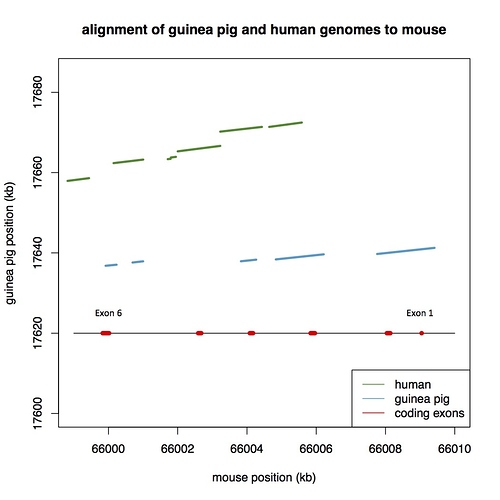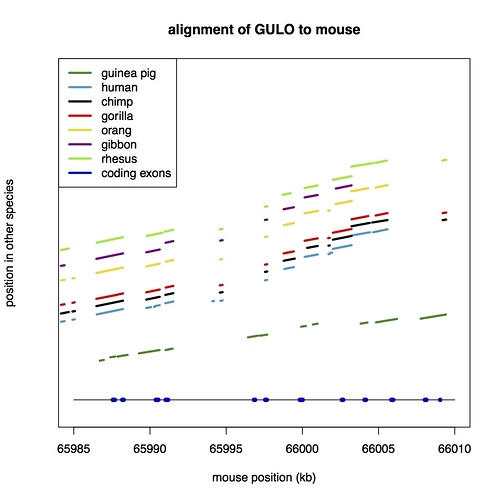This is a reply to both AMWolfe and Nuno. I am not at home at the moment however I still have access to an internet connection so I will reply to your objection with evidence that is freely found on the internet.
“Francis Collins (Biologos’ glorious founder) is a joke.” I have backed this up with evidence. Collins has never been able to intellectually defend his TE when presented outside the confines of TE scholarship. I have listed three occasions in which Collins has had to offer an intellectual defense of his faith and/or TE and in each case he failed badly. All of this incidences are found on the web. Are you suggesting that Collins in these cases did offer a cogent defense? Or that it is bad manners to point out the intellectual failures on TE and its proponents? Collins is a great scientist but he is not a theologian or philosopher and had failed to put forward a logical non-vacuous case for the compatibility of Neo-Darwinism and Christianity. Collins is correct when he states that TE “will not go out of style or be disproven by future scientific discoveries” (Lang. of God 210). But that is because Collins’ TE totally lacks content; it makes no claims and cannot be subjected to philosophical analysis. No argument can support it either (other than it cannot be disproved). If you think that Collins has put forward an argument for TE that he has defended against opposition than please provide details of a link and I will take it all back.
Darrell Falk. I must admit I am beginning to like Falk as he has, in recent years, become quite decent in his dealings with those Christians who are not TE. But sadly in the past he has been incredibly rude especially to Stephen Meyer. Do you remember when Francisco Ayala reviewed Meyers ‘Signature in the Cell’? In which Ayala addressed arguments that Meyer did not make and even got the title of Meyer’s book wrong. (http://biologos.org/blogs/archive/on-reading-the-cells-signature/). Falk presented Ayala as a great modulating influence on the science/religion dialogue and even linked to the 2006 ‘Beyond Belief’ conference and claimed that Ayaya kindly but forcefully admonished new atheists for their style. Actually what Ayala said at that conference in regard to religion was “There are six billion people in the world. If we think that we are going to persuade them to live a rational life based on scientific knowledge, we are not only dreaming — it is like believing in the fairy godmother. People need to find meaning and purpose in life I don’t think we want to take that away from them.”. Falk did offer Meyer a response but initially refused because Falk “felt his tone was insufficiently respectful of one of Biology’s living legends.” Which I am sure you would agree is just a ridiculous excuse.That Steve “was criticizing Ayala for doing a terrible job of something Ayala was never asked to do. He was not asked to review Signature in the Cell.”. This could be true but Falk did call initially call Ayala’s essay a review. That Steve had not done what we agreed he would do, which was to engage Ayala’s philosophical and theological arguments. Which I do not believe for one second as Meyer has always stressed that ID is a scientific theory and in any event how can you engage with someone’s Philosophical and theological arguments when they have failed to grasp even a basic idea of the book in question. The whole sorry story is here http://biologos.org/blogs/archive/on-not-reading-the-signature-stephen-c-meyer’s-response-to-francisco-ayala-part-1. Of course rather than apologize to Meyer, Falk went on the offence, attacking Meyer’s intellectual background and claiming that ID’s success and Meyer’s plausibility are due only to communication skills. The whole thing is here http://biologos.org/blogs/archive/on-reading-the-signature-a-response-to-stephen-meyer/. Falk and Meyer went on to exchange a number of essays which resulted in Falk concluding that Meyer understood the science well, was well read up on the cutting edge of research and that he considered ID as science. Falk had little choice, Meyer schooled him.
Karl Giberson. Giberson wrote in an article that the Discovery Institute wants taught in science classes include a 10,000-year-old earth, Noah’s Ark, and Adam and Eve:
“For starters, the “controversies” they want to teach don’t even exist. In their minds the possibility that the earth is 10,000 years old is an open question, even though geologists settled that one in the 18th century. They still think that Adam and Eve were real people and Noah may have rescued all the animals in the ark – claims settled in the 19th century.”
Discovery Institute Still Undermining Science | HuffPost Religion.
Giberson knows that this is not true; that is what makes him deliberately dishonest.
As for the photo shopped photo of a baby with a tail Giberson did apologize after it was conclusively proven that it was fake. The whole thing is here (Karl Giberson Apologizes for Photoshopped Image of Tailed Baby | Evolution News) with Giberson’s replies and quotes and other links to the debate with Stephen Meyer. But notice that Giberson goes on the offence and accuses DI of lies. How much more pathetic and unpleasant can a person be? As for the debate Giberson lost as he always does.
Francisco Ayala. I have already said a lot about him. However he continues to state that Behe claims that the eye is irreducibly complex or that ID argues against common descent. Of course many evolutionists state the same falsehoods. But what sets Ayala apart is that in addition to regurgitating false claims after the debate with William Lane Craig he claimed that he was set up that he had no idea that it was a debate but he was asked to give a lecture. This is just ludicrous, both Indiana University and Bradley Monton moderator confirmed that this was not the case. The debate is on the web and for a good atheist review Luke Muehlhauser.
I can only guess that Falk, Giberson, Ayala are all follow of Philip L Quinn’s advise on how to deal with ID and Creationism
“It sometimes happens that the best arguments one can give in support of a view are not going to be effective and the most effective arguments one can give are not going to be good. After all, decision-makers are sometimes too busy to master complex arguments. Then, too, they can be prejudiced or even stupid. When one is aware that this is the situation – and I suspect this is rather common – then one confronts the philosopher’s dilemma.
One horn looks roughly like this. Convinced of the overall rightness of one’s position, one opts to present the effective bad argument. Each time one does this, one’s hands get a little bit dirtier. At first one is painfully sensitive to even small compromises that one knows to be violations of one’s intellectual integrity, but gradually numbness of conscience sets in. At last, when presenting the effective bad argument has become easy and habitual – second nature, as it were – one’s hands have become dirty beyond all cleansing and one suffers from a thoroughgoing corruption of mind.
The other horn looks roughly like this. Concerned to preserve one’s integrity at all costs, one resolves never to present the effective bad argument. One always presents the best argument one can for the position one thinks most nearly right, and one’s hands remain clean. But frequently these good arguments fail to persuade or carry the day, and gradually one’s credibility and effectiveness wane. At last, when one has an established track record of failure, the decision-makers conclude that one is of no use to them, and one is unceremoniously cast aside.
Though it should be obvious that I have been exaggerating a bit for rhetorical effect, I think the hard choice between corruption and ineffectuality is sometimes real enough. That is the dilemma! Is there a way between its horns? Perhaps. My colleague, Dan Brock, suggests that academic philosophers should only get involved in the policy-making arena on a temporary, short-term basis. Maybe this is a way in which we could manage to have our cake and eat it too. For a short period one might engage in giving bad effective arguments without being thoroughly corrupted. Then one could retreat back to the academy to wash one’s moderately soiled hands.
After having one’s intellectual integrity restored and reinforced, one might then be ready to repeat the cycle.
The application of what I have been saying to the creationist controversy is straightforward. It seems to me that the attempts by creationists to foist their particular brand of dreadful science on public school curricula are pernicious. We should resist such attempts and resist them effectively in the political realm. But some of the creationists who are making such attempts are, to put it not too harshly, shysters. So there may well be circumstances in which only the bad effective argument will work against them in the political or legal arenas. If there are, then I think, though I come to this conclusion reluctantly, it is morally permissible for us to use the bad effective argument, provided we continue to have qualms of conscience about getting our hands soiled. But I also believe we must be very careful not to allow ourselves to slide all the way down the slippery slope to intellectual corruption. Perhaps, if we divide up the labor so that no one among us has to resort to the bad effective argument too frequently, we can succeed in resisting effectively without paying too high a price in terms of moral corruption.” But Is It Science 397-399
In other words lie.
Biologos (TE) never criticises atheism; never critically examines science; never criticizes the atheist stance of many modern scientific organizations. It seems to regard God and theology in a non-realist manner that can be dictated too, and even insulted by the scientific authorities. In other words science is factual; Christianity, God, the Resurrection are a set of warm fuzzy feeling that are strictly false as statements of reality. Its targets are only Christians who fail to accept the full Neo-Darwinian paradigm. Biologos is as much a political group as an academic one trying to create a world in which religious faith has the same content as a preference for tea over coffee.



